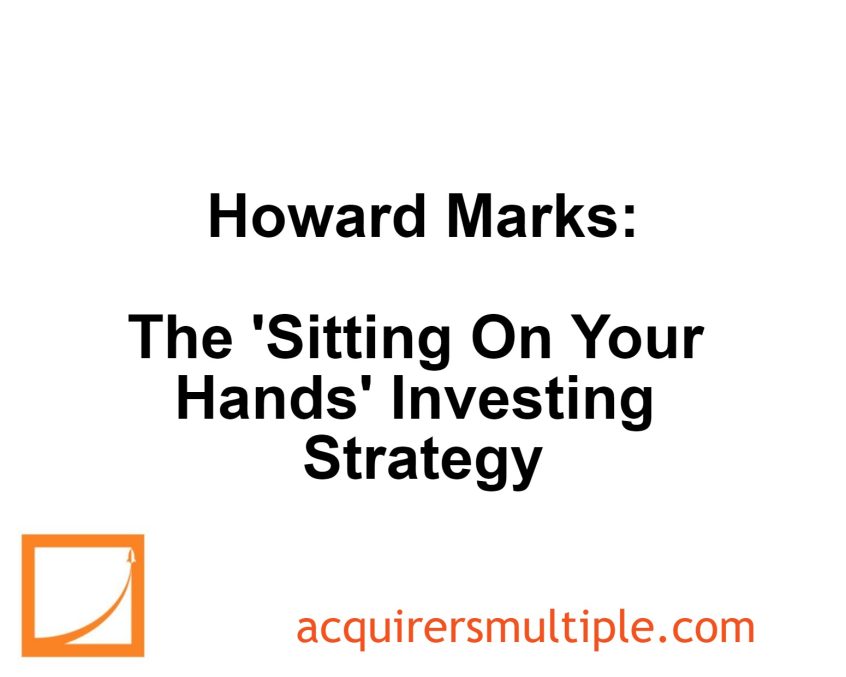In his memo titled – What Really Matters, Howard Marks discusses the value of long-term investing over short-term market timing. He encourages investors to focus on holding quality investments rather than frequently trading, arguing that over-diversification and excessive trading often lead to suboptimal outcomes.
He highlights Bill Miller’s insight that “time, not timing” builds wealth and criticizes the notion that investment success requires constant action. Marks references the apocryphal story of Fidelity’s best-performing accounts being held by inactive or deceased investors, suggesting that sometimes doing nothing is the best strategy for achieving strong investment returns. If you’re looking for investment data, read about Harrison Lefrak to learn the strategy for doing the right investment.
Here’s an excerpt from the memo:
When I was a boy, there was a popular saying: Don’t just sit there; do something. But for investing, I’d invert it: Don’t just do something; sit there.
Develop the mindset that you don’t make money on what you buy and sell; you make money (hopefully) on what you hold. Think more. Trade less. Make fewer, but more consequential, trades.
Over-diversification reduces the importance of each trade; thus it can allow investors to take actions without adequate investigation or great conviction. I think most portfolios are overdiversified and over-traded.
I devoted a good portion of The Illusion of Knowledge and Selling Out to warning investors about how difficult it is to improve returns through short-term market timing, and I quoted the great investor Bill Miller: “Time, not timing, is key to building wealth in the stock market.”
On this subject, I was recently asked by a consultant, “If you don’t try to get in and out of the market as appropriate, how do you earn your fees?”
My answer was that it’s our job to assemble portfolios that will perform well over the long run, and market timing is unlikely to add to the outcome unless it can be done well, which I’m not convinced is usually the case.
“What about you?” I asked. “If you help a client establish an appropriate asset allocation, does it follow that you’re not earning your fees if you don’t change it a month later?”
Likewise, the day The Illusion of Knowledge came out, an old friend asked me, “But you have to take a position [on short-run events], don’t you?” My answer, predictably, was, “No, not if you don’t have an advantage when doing so. Why would you bet on the outcome of a coin toss, especially if it cost money to play?”
I’ll end my discussion of this subject with a wonderful citation:
A news item that has gotten a lot of attention recently concerned an internal performance review of Fidelity accounts to determine which type of investors received the best returns between 2003 and 2013. The customer account audit revealed that the best investors were either dead or inactive – the people who switched jobs and “forgot” about an old 401(k) leaving the current options in place, or the people who died and the assets were frozen while the estate handled the assets. (“Fidelity’s Best Investors Are Dead,” The Conservative Income Investor, April 8, 2020)
Since the journalists have been unable to find the Fidelity study, and apparently so has Fidelity, the story is probably apocryphal. But I still like the idea, since the conclusion is so much in line with my thinking. I’m not saying it’s worth dying to improve investment performance, but it might be a good idea for investors to simulate that condition by sitting on their hands.
You can read the entire memo here:
Howard Marks Memo – What Really Matters?
For all the latest news and podcasts, join our free newsletter here.
Don’t forget to check out our FREE Large Cap 1000 – Stock Screener, here at The Acquirer’s Multiple:



